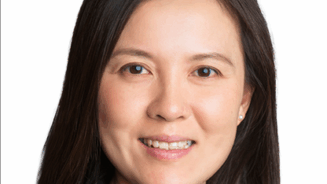A perfect match
While an overall sense of confidence envelopes the firm’s business model, this is bolstered by PIAS ensuring clients are matched up to advisers who have similar needs and wants.
“Clients who come from countries outside of the city state could easily be serviced by representatives from those countries, particularly because they will understand the needs of those individuals,” says Teo.
For the most part, the vast majority of PIAS’s 400 representatives are of Singaporean heritage, with expat advisers only constituting a small fraction of the business. Yet this number is a cinch considering expatriates make up just 5% of its client base.
“There is a potential pool of expats who are Singaporean permanent residents,” says Teo. “This pool of foreigners in Singapore could easily be 25% of the entire population.”
Moving upstream
When comparing the difference between servicing expat and local clients, he says it is tax and investment planning that are the primary concerns for expatriates, as many hope to stretch what they earn overseas.
For local clients, however, concerns revolve around the increase in healthcare and childcare costs, as well as insurance, child education and retirement planning. And though professional managers, executives, technicians and those employed in small and medium-sized enterprises are PIAS’s staple customers, this client dynamic is not set in stone.
In fact, the company is currently looking to move upstream, attracting those ultra-high net-worth (UHNW) clients who are increasing in numbers amid the ever-bulging wealth prospects in Asia.
Wealth boom
“The general population across Asia is becoming more educated, so their propensity to spend and invest will proportionately increase,” says Teo, suggesting the shift towards UHNWs is a natural progression for the company. “This new wealth represents better business opportunities, not just for us but the growth of the financial services industry in general.”
Alongside potential partnerships with private banks, PIAS has also taken on three new bosses in the last year, including its head of product strategy, head of the direct sales channel and head of operations. The primary objective of these new hires is to help target the high-flying client base and to forge a new business line.
Trial runs
PIAS prides itself on being ahead of the game and, despite the delay in new regulations following 2012’s Financial Advisory Industry Review (FAIR), PIAS has not halted its imp-lementation of various aspects of the proposals.
In fact, it started its own trial of the Balanced Scorecard initiative nine months before the Monetary Authority of Singapore launched the pilot.
“As the Balance Scorecard is new to everyone, we want to be seen as a leader in this market and to be operationally ready to embrace this change. This will help differentiate us from the rest.
“During the past few months, PIAS has run a number of trial runs on Balanced Scorecard works to better equip ourselves and be ready for this implementation. Our regulators are engaging with the industry more proactively and are now taking a more consultative approach,” Teo says.
“The implementation of FAIR and Balanced Scorecard will be good for the industry and will certainly help to ensure proper product recommendations will suit the needs of the general population.”
Maintaining standards
Certainly, as one of the largest advisory firms in the city state, PIAS has to ensure standards are maintained across the board.
It achieves this by focusing on four key areas: obtaining the right standard of professionals; better supervision to ensure advisers subscribe to the PIAS methodology; staff training and competency to make sure product recommendations are in line with the firm’s investment strategy; and good compliance staff to oversee advisers’ day-to-day activity.
It is difficult to comprehend how advisory firms pull through in the face of so much change, but PIAS is intent on confronting it head on.




